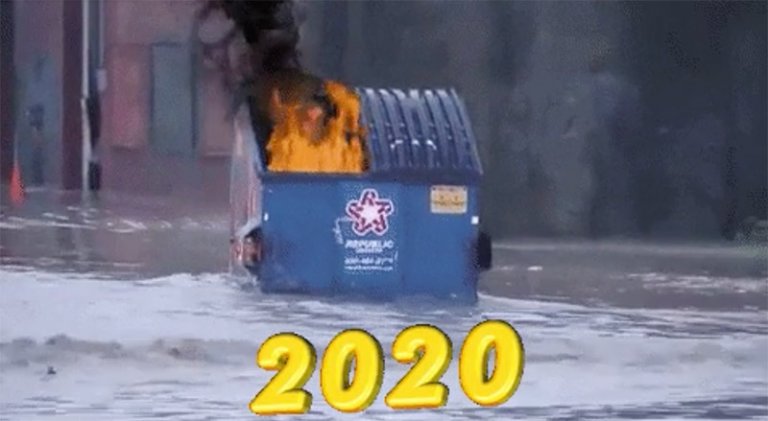Part of an effective hiring strategy is knowing who you want to bring on board. After all, if you don’t know what you’re looking for in a candidate, how will you know where you find them? Cue the candidate persona. A candidate persona is far from just your imaginary, perfect hire; it embraces a data-driven approach to finding the right candidate for your startup.
Ask yourself these questions when building a candidate persona
1. What is my startup’s culture?
A lot of time and effort goes into building the positive work environment and culture your employees and clients experience. That’s why when you’re creating your candidate persona, you need to keep that culture in mind. Build a persona that reflects the person who fits in best with your company culture.
Make sure you’re effectively communicating your company culture to potential candidates to better attract and build a team that embodies your culture.
2. What does this role require?
Company culture fit is crucial in a candidate, and you may have to sacrifice some skills and experience when you hire in real life to have a better culture fit. However, when you create an ideal candidate persona, combine the best of both worlds — perfect skills plus the ultimate cultural fit.
Look at the roles you need to fill, and think about the necessary skills required, as well as how much experience the ideal candidate needs to have to best perform. Add to that list of skills ones that would be nice to have but aren’t deal-breakers. This will help build a persona that is well-rounded and outline what to look for when reviewing resumes and conducting your interviews.
3. Where is my ideal candidate in their career?
When building your candidate persona, outline where the ideal person is in their career. Are you a startup with a more junior team in need of leadership and direction? You might be looking for a candidate who is at a later stage in their career. Or are you an established startup looking for fresh insight from someone who has knowledge on the latest tech stack or practices? Perhaps someone earlier in their career might be the breath of fresh air you’re looking for!
Outline your needs in the specific role you’re trying to fill and go from there.
4. What candidate weaknesses can I live with?
Forgive and forget… some things. This goes back to our ‘wish list’ for an ideal candidate. Not everyone you interview will tick all the boxes so we recommend having a ‘must have’ list and a ‘would be nice to have list’. Figuring out which weaknesses you’re willing to forgive in a candidate is important.
If you’re not sure where to start, evaluate your own team. Evaluate the skills that could be taught or can develop with experience working with your team. Another key indicator — look at past hires that weren’t successful and figure out what the red flags were that might have been missed, or skills you had on the ‘would be nice to have’ list and look at adding them to the ‘must-have’ list.
5. What are my perfect candidate’s goals?
What role will the new hire have in the long-term and short-term goals of the company? Is your role a contract for a particular project, or are you seeking someone to join the team with the purpose to grow the business in the long run? Be forthcoming with what the role needs to help determine which goals your ideal candidate should possess.
 6. Where is my ideal candidate located?
6. Where is my ideal candidate located?
While the adoption of remote work has been increasing by 10 percent with an expectation that the majority of organizations will go remote by 2025, the pandemic sped up the adoption rate. This, of course, is something you need to consider thoroughly when you head back to the drawing board to plan out the next 5-year trajectory of your startup, including how your staff operates.
Where has your ideal candidate been before? Where are they currently? Remote, hybrid, or office roles will have different geographical requirements. The model of work you’re going to have post-pandemic will impact where your team can live so it’s best to narrow it down sooner rather than later. If you’re remote now, but planning to make hybrid in-office visits mandatory two or three times a week, you may save wasted time and energy by focusing on candidate pools that are open to being on-location. After all, remote and office work are two very different beasts.
7. What are their online habits?
How your ideal candidate uses media, what their passions are, and even how they shop can be a helpful indicator for how they’ll function daily and fit in with the company culture. These habits can set apart an ideal candidate from a passable candidate. Look to your team members — where do they live, work, and play?
When interviewing, ask questions to get to know your candidates better to help determine their fit.
Why having a candidate persona is beneficial for your startup
A candidate persona provides your team with a guideline for what to look for in candidates when interviewing, increases your employee retention rates, strengthens your company culture and can build a better team for your startup.
Optimize sourcing and recruitment marketing
If you know who you’re looking for, you know where to find them. By creating a candidate persona and learning their habits, you can source candidates from the right places. Plus, as Built In points out, your recruitment marketing strategy benefits by being able to better predict the kind of content that’s going to resonate with your ultimate hires.
Create better job descriptions
Knowing your target audience, where to find them, and what they like also means you can tailor your job descriptions to the ideal candidate. This saves your business time and energy in the long run, as you’ll be receiving applications from people who genuinely feel the role and your business are the right match for them. Vultus found that 72% of hiring managers think they have clear job descriptions, but only 36% of candidates feel the same. What does this mean? A candidate persona will give you a better idea of how to describe open roles, leading to less turnover and less money spent on hiring.
Get better recruitment metrics
With the right candidate persona, your key hiring and retention metrics will reflect a job well done. Besides the benefit of saving time and money, an effective candidate persona will be reflected in your time and cost to hire, application completion rates, rates of offer acceptance, the quality of your hires, and increased employee retention.
What to do next?
Don’t just wait around for the right person to respond to your job advertisements. In a competitive market, it pays to be strategic. You didn’t start your business without being a go-getter, so… go get’er! To recap:
- Take the time to research your ideal candidate,
- Dive into the roles you want to fill and who would best serve them,
- Analyze your company culture to define what personality traits and interests best fit
- Establish the KPIs you consider essential and want to improve.
Taking the time now saves you time later in sourcing, hiring, retention, and marketing. It’s a lot to consider… Need a hand? Reach out to us today.







